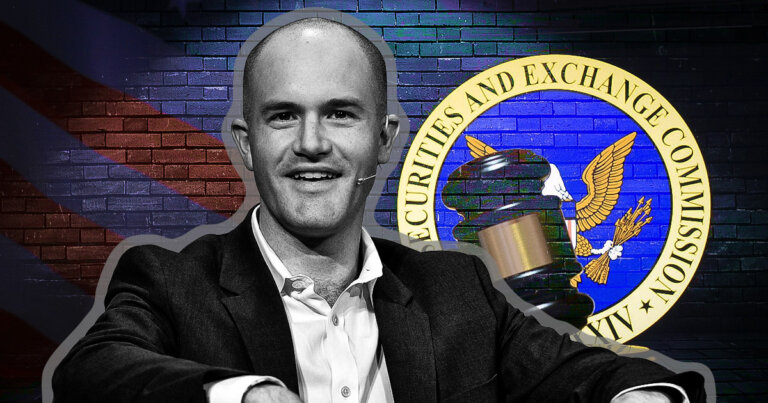 Coinbase CEO says SEC wants to ban retail staking
Coinbase CEO says SEC wants to ban retail staking Coinbase CEO says SEC wants to ban retail staking
Brian Armstrong said that his crypto company has heard rumors to that effect.

TechCrunch / CC BY 2.0 / Flickr. Remixed by CryptoSlate
Coinbase CEO Brian Armstrong said on Feb. 8 that his company has heard rumors that the United States’ main securities regulator intends to ban staking.
Armstrong wrote on Twitter:
“We’re hearing rumors that the [U.S. Securities and Exchange Commission] would like to get rid of crypto staking in the U.S. for retail customers. I hope that’s not the case as I believe it would be a terrible path for the U.S. if that was allowed to happen.”
Staking involves depositing a cryptocurrency into a contract. Those who do so earn interest on their deposit, and they may validate blocks if they stake on-chain. The practice is considered to be much more efficient and scalable than alternatives like Bitcoin mining.
Armstrong defended the practice in those regards. He said that “staking is not a security” and added that it provides various benefits to crypto networks.
He also referred to an earlier debate that took place as Ethereum transitioned to a staking model last year. One argument against regulation at that time said that staking involves no common enterprise or intent to gain profits solely from the efforts of others — two criteria that are required for investment contracts to be regulated under securities law.
Coinbase has already faced scrutiny from the SEC over adjacent interest-bearing products. It canceled its Lend product after the regulator threatened charges in 2021. The firm also said in late 2022 that the SEC has requested information about its services including “its staking programs, and its stablecoin and yield-generating products.”
It is not clear whether the SEC supposedly intends to ban staking on third-party providers like Coinbase, or whether it intends to restrict staking at a more basic level. However, it would be difficult for the regulator to accomplish the latter if fiat currency is not involved.
Prominent blockchains and coins that rely on staking include Ethereum (ETH), BNB Chain (BNB), Cardano (ADA), Polkadot (DOT), Avalanche (AVAX), and many others.















































































































